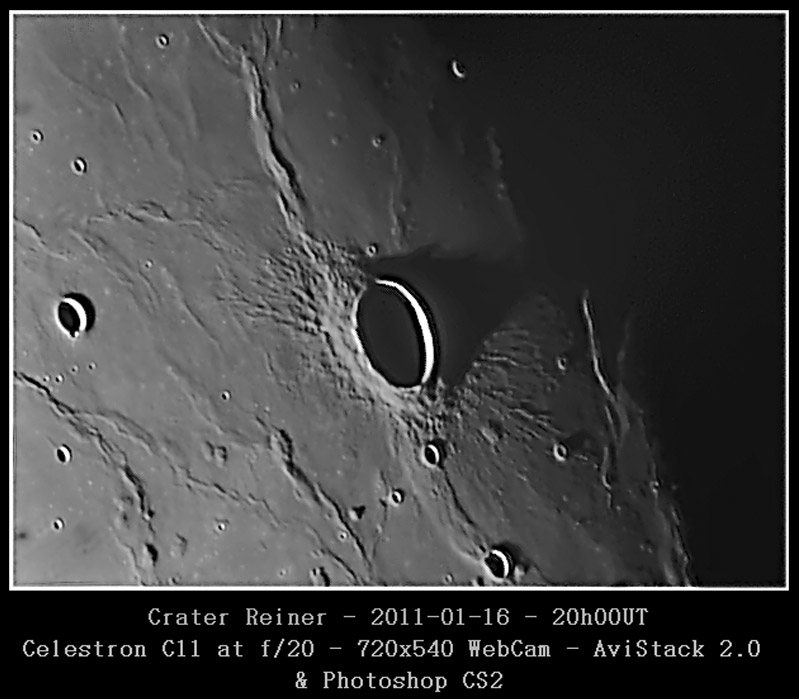Difference between revisions of "January 25, 2011"
| Line 16: | Line 16: | ||
Wonderful, little known Apollo 12 low Sun [http://www.lpi.usra.edu/resources/apollo/frame/?AS12-52-7756 view].<br /> | Wonderful, little known Apollo 12 low Sun [http://www.lpi.usra.edu/resources/apollo/frame/?AS12-52-7756 view].<br /> | ||
<br /> | <br /> | ||
| + | <p><b>Yesterday's LPOD:</b> [[January 24, 2011|How Deep is That Hole? Version 2.0]] </p> | ||
| + | <p><b>Tomorrow's LPOD:</b> [[January 26, 2011|The Moon is a Balloon]] </p> | ||
<hr /> | <hr /> | ||
Revision as of 10:51, 7 February 2015
Insufficient Evidence

south up image by Markus Blauensteiner, Gahberg, a little hill in Upper-Austria
Reiner Gamma is such a famous feature that the crater the swirl is named after is usually hardly noticed. Markus restores interest with his great low Sun view. The long shadow of the crater itself looks like a profile of a castle, with spires everywhere. The small hills are outliers of the Marius Hills. Although there is absolutely no evidence of it at this low Sun the small crater in the 4 pm position from Reiner is right on top of a white swirl. This image shows that ejecta from Reiner crosses the swirl and therefore is younger than the swirl. Or the process that causes swirls works on ejecta too, and the swirls are possibly younger - not very definitive. Another interesting observation is that the radial ejecta does not extend equally in all directions. A vertical view from the LRO-WAC confirms this. There are two likely explanations - younger lava flows covered part of Reiner's near in ejecta, or Reiner formed by a low oblique impact with ejecta only going sideways, not in the downrange or uprange directions. Unfortunately, there are no rays visible from Reiner, so there is no ray evidence for an oblique impact. However, the crater is slightly elongated in the direction expected if it were formed by an oblique impact. The LRO-WAC image provides no evidence that some of the nearby lavas are younger than the others. So, with the images examined so far, we currently do not have compelling reasons to select between these two alternatives. What additional evidence can we look at to try to resolve the uncertainty?
Chuck Wood
Technical Details
16.01.2011, ~20:00. Celestron C11 at f/20 + 720x540 webcam + infrared-block-filter; 1000 pictures were taken, 120 stacked in Avistack, and processed in Photoshop CS2.
Related Links
Rükl plate 29
Wonderful, little known Apollo 12 low Sun view.
Yesterday's LPOD: How Deep is That Hole? Version 2.0
Tomorrow's LPOD: The Moon is a Balloon



